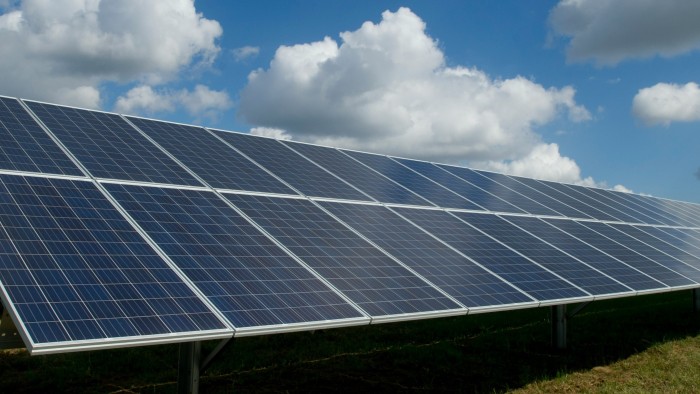Planetary Solutions in Clean Energy Fellow Feature: Lawrence Tang

The Yale Center for Business and the Environment (CBEY)'s Planetary Solutions in Clean Energy Fellowship matches 10 undergraduate and graduate students with non-profit, low-profit, and governmental organizations committed to energy equity and the deployment of clean energy into low- and middle-income communities. The program provides summer research and internship opportunities to students at Yale who are committed to advancing energy equity and pursuing a career in the clean energy field. Through this fellowship, Lawrence Tang, a rising senior majoring in Environmental Studies with a focus in agriculture and climate change, and pursuing a certificate in Spanish, interns at the Honnold Foundation. The Honnold Foundation works to fund projects across the world that utilize solar to generate innovative, equity-focused outcomes for marginalized communities.
What led you to intern at the Honnold Foundation this summer?
When I was interviewing, I really clicked with the team, and as I learned more about their projects I felt like the placement was a good fit. I like the fact that they do a lot of international work and that it’s a pretty small team overall. Honnold engages at the grant making level and finances different solar-related projects. Every single year they have a core fund, and they will put out applications for different nonprofits and organizations to apply for this funding. The project must be at least somewhat solar-related.
What exactly does the Honnold Foundation do?
After they’ve collected applications for funding from different nonprofits and organizations, they'll have a review process. There's a mix of single disbursements alongside more multiyear regular partners. What I found really cool about Honnold is that they view solar as a bridge to other possibilities. Basically, using solar power to build social power, and I think throughout the course of my internship, I've really seen that idea come into play.
A lot of my work has been looking at what solar power has enabled for different communities and organizations. For example, one of the organizations runs a lot of programming and education based in rural villages in northeastern Mexico, where there isn’t much infrastructure. One of the things that the solar installation there has allowed is access to reliable electricity and internet, which has enabled a lot of these women, who practice embroidery, to support their main source of income. By having reliable electricity, it has allowed them to expand. Their shop can now stay more connected with their families, clientele potential, and collaborators. Overall, solar has given a lot of different communities a greater sense of agency by improving their current ways of life or trying to preserve their ways of life amidst changing conditions and climate change.
What has your role looked like within the organization over summer?
I’ve been able to spend some time traveling. I spent a week in rural Mexico visiting a couple of partner organizations. One organization, PSYDEH, which is about a four-hour drive northeast of Mexico City and the other is called U Yich Lu'um, which is based in the Yucatan Peninsula, southeast of Merida. We got a chance to see their solar deployments, and what they're using the solar for, as well as get a sense of the area. Over the course of the week, I took a lot of pictures, did a bunch of interviews, and filmed several videos. Overall, recorded a lot of media to help with the newsletter, donor engagement reports, and case studies. We work to highlight the operating model of our partners and potential lessons that we could extrapolate. I also got a chance to engage with a Brooklyn based composting service that does door-to-door compost harvesting, powered entirely through E-bikes. So, it’s been really interesting seeing how different hyper local projects leverage different resources from different areas.
What new information did you learn over the summer because of the fellowship?
One thing I was surprised by was the adaptability required for this kind of work, for example suddenly needing to change trip itineraries with traveling and partner needs. There are real big benefits to working on a small team. It’s very dynamic and people are doing different things. I guess it kind of comes down to demystifying what it meant to work at a nonprofit or foundation.
What kinds of skills are you using on the job?
I would say a lot of soft skills. My work in Mexico involved talking to people, collecting their experiences, and getting anecdotes and quotes. It was a bit outside of my comfort zone, but I learned a lot. Also, just getting used to remote work and the logistics of teamwork.
What do you hope to do in the future?
I want to keep working in the environmental field and utilize soft skills and writing to grab people's attention. For example, preparing materials that strike the right balance of technical information and accessible communication. I’ve also really enjoyed working in a small tightknit organization.
What advice would you give to other students or folks looking to explore clean energy?
Even if you feel like you may be new to the topic go ahead and shoot your shot. I didn’t know much about the technical aspects of solar before this summer and I was able to do this work and learn on the job. Moreover, I think just keeping an open mind and being flexible in your goals is important. I find that most people are a lot more friendly and willing to talk to you than most people expect.